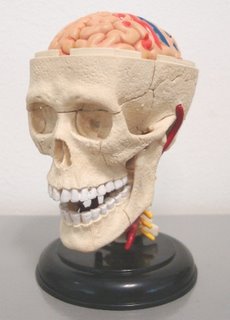 Do you really, really hate your job?
Do you really, really hate your job?Maybe you suck.
Or maybe you're actually stuck in a depressing job.
The US Substance Abuse and Mental Health Services Administration (SAMHSA) has recently released survey results that reveal the rate of depression among full-time employees by occupational category.
Click here to read the full report.
Here's a summary of the overall depression rate by employment status:

Looks like it's less depressing to land a full-time job, which sorta makes sense.
We can use 7% as the baseline rate of depression then. If your job category scores higher than 7%, it may not be your fault - something about your job is a huge emotional drain.
Let's check out the job categories!

People who work in personal care and services, for example taking care of old folks and stuff, appear to have the highest risk of becoming depressed, at a whopping 10.8%.
Those who work as engineers, architects and surveyors appear to be least depressed.
Hmm... maybe it has something to do with the social dimension of the job.
I guess that dealing with unhappy demanding people all day everyday will eventually take its toll.
But wait, what's that category that's second from the bottom?
"Life, Physical, and Social Science = 4.4%"
Ho ho is that even right!?!!
4.4%!
I can count the number of happy graduate students that I've met in my entire life on one hand!
Ok, on one finger.
How can there be so many non-depressed people in the Sciences?
How can? HOW CAN!??!
Perhaps there's something wrong about the methodology.
Or perhaps I didn't read the fine print...

Ah, it makes much more sense now. Students are NOT part of that job category.
We're lumped together with retired persons, disabled persons and homemakers in the 12.7% "Other" category.
I don't know about retirees, disabled people and homemakers, but I'll bet that at least 50% of the graduate students in the survey were depressed during the previous year.
Whoopsy daisy.






5 Comments:
Hi Leng Hiong, was recommended to you by Angry Dr on some qns on clinical research...could you advise where are some authentic links to find out what this field is about and suitable for what kind of people( or rather is only open for people with life science/med/nursing degree to begin with).Info avail from google but dun know how accurate it is.Thanks! -LH
Hi LH,
I'm not in clinical research (I am doing basic science in evolutionary biology), but many years ago I have applied for a clinical research position before, so I have some idea of what they are looking for.
In Singapore clinical research is mainly hospital-based. Most clinical researchers are medical doctors or nurses.
I think the entry-level qualification for clinical research is a nursing diploma, since you will need to collect patient samples (eg. venipuncture).
However, some research departments also need laboratory technicians and statisticians, so here is another point of entry.
If you want to know more, you can check out these websites:
SGH Department of Clinical Research
NNI Epidemiology & Clinical Research Unit
Singapore Institute for Clinical Sciences
Thanks for replying, Leng Hiong.
You're welcome, Angry Doc.
Hi Leng Hiong, thanks for ans & links. visited 'em and find to do actual clinical research work (refering to drug trials-test drug A effects on pts)-prelim conclusion is 1) minimum need a mbbs/nursing/lifescience degree to get in (incl'technician' role). To do 'supporting work'-eg: statistician- at least masters in stats.It didn;t say the difference between a "clinical research associate" and a "clinical research coordinator"-terms found in papers.
I wonder how many pple out there studied what they studied and then find that they are in a situation where they either make use of what they study ("relevant education") to get a living-which they may not like now/later on; or study something else in order to see if they can get in to another place.What would they do if they have studied-say History- all these while and to get a job that will hire 'with relevant exp', but now the person thinks work life isn't all about writing papers, theories & ppts, but wants to be a hair-cutter instead?-LH
Post a Comment